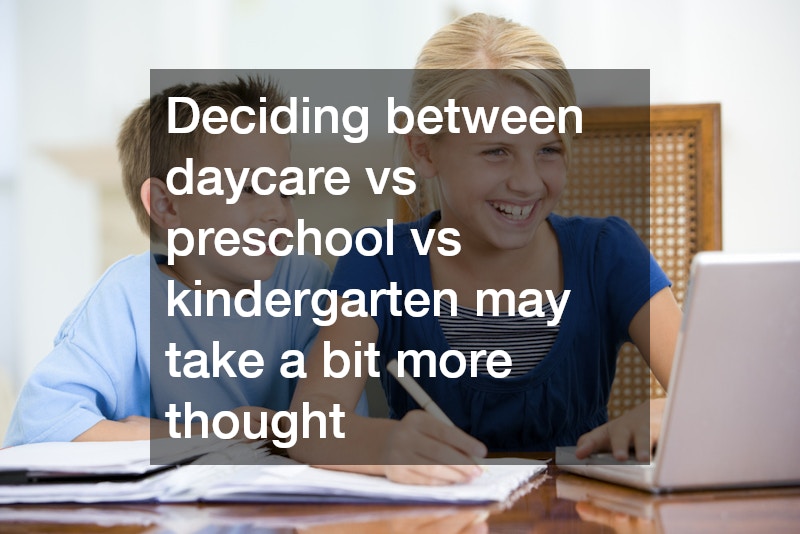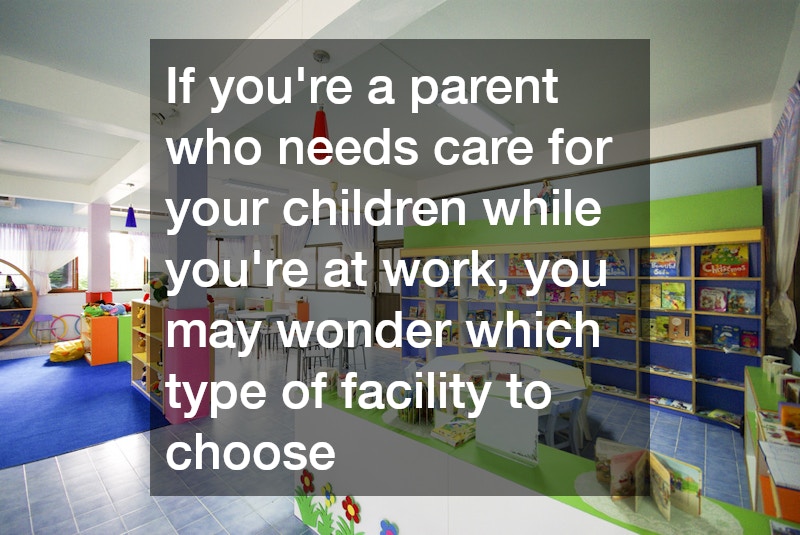
If you’re a parent who needs care for your children while you’re at work, you may wonder which type of facility to choose. You may wonder about the difference between daycare and preschool. According to What to Expect, one of the ways preschool is different from daycare is the age ranges of these types of institutions. While daycare centers may accept babies at six weeks old, most preschool facilities accept children from ages three to five.
While daycare centers offer a safe place for young children, they do not typically offer an academically oriented curriculum. According to Daycare Pulse, another difference may be the hours each center is open. While normal daycare hours are 7 a.m. to 6 p.m., parents who work alternate shifts must search further for a facility that can accommodate off-shift hours.
When your child reaches the second half of their fourth year, another type of facility becomes available. Some parents may enter their child into kindergarten at age four to give their child a “leg up” on their educational path. While it’s easy to see the differences between kindergarten and daycare programs, deciding between daycare vs preschool vs kindergarten may take a bit more thought.
As your child grows and develops, you might consider enrolling them in a local preprimary school or daycare program. These are great options to develop your child’s social skills, empathy, cognition, and more. But what’s the difference between preprimary school and daycare?
Here are some of the main characteristics of both options to help you make an informed decision for your child.
Daycare
Daycare is a loose term that often refers to any type of child care. Many daycares will utilize a class regimen to enrich the lives of their students. Daycares, however, might also accept children in a wide variety of age ranges, from infants to pre-Kindergarteners. This type of childcare may be a setting where a child is simply looked after. When you’re choosing the right kind of daycare for your child, ensure you investigate the daily schedule of a childcare program to offer your child the best learning experience based on their needs.
This isn’t to say that a childcare program that is based in play won’t be beneficial for your child. But if you want to enrich your child’s learning experience, you may want to consider the benefits of private schools in lower Manhattan.
Preprimary school
Private nursery schools in NYC place a huge emphasis on learning at a young age. In fact, preprimary programs are known as classes or groups that offer an educational setting to children who are under the age of five but still include kindergarten and preschool programs. Unlike a daycare, preprimary schools are also known as progressive schools that utilize a core curriculum rich with science, math, arts, and literature.
Private preschools and private nursery schools hold education standards that help your child get ahead of the curve. They often rely on plenty of parent engagement to get the family involved with their child’s learning experience.

